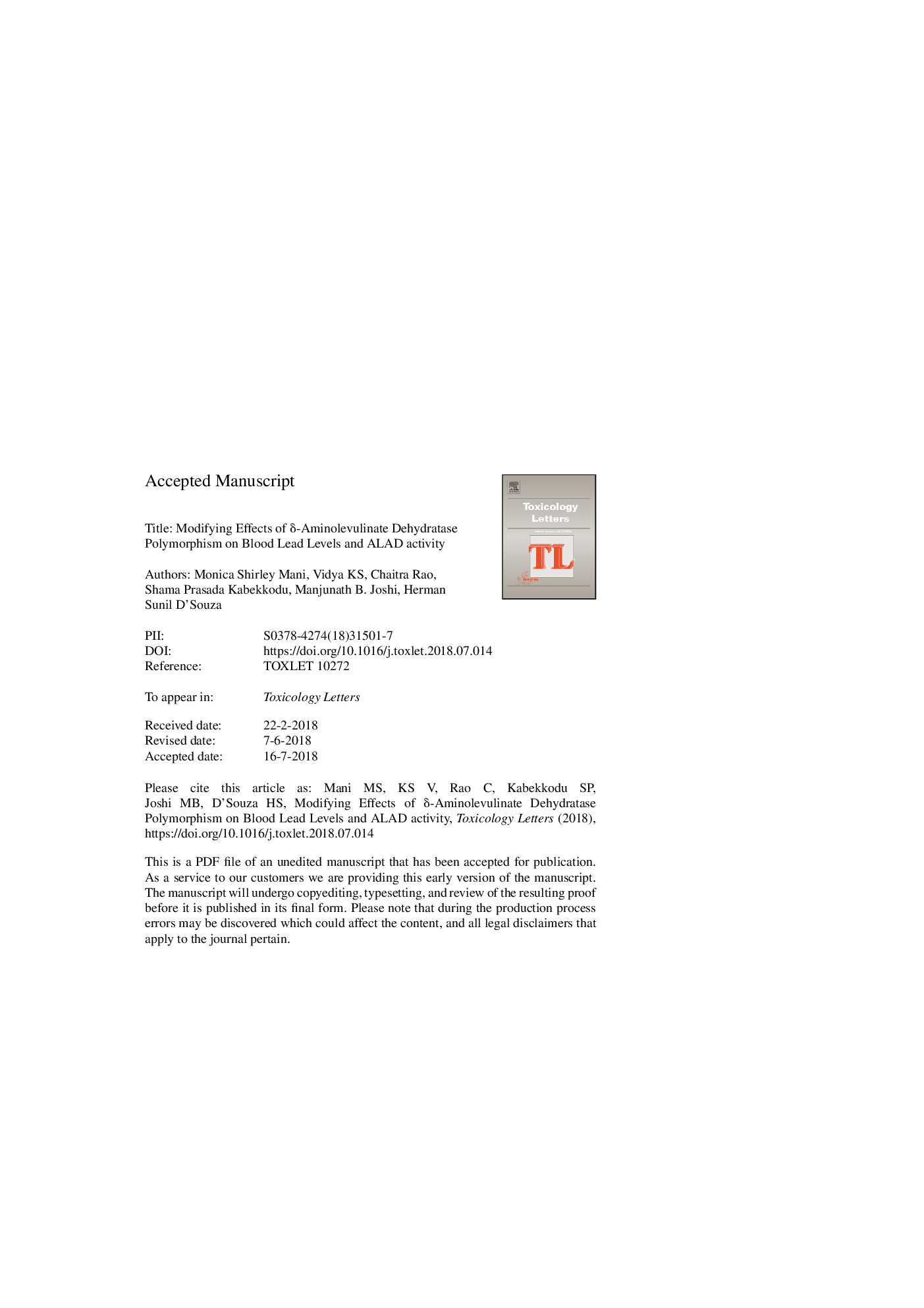| Article ID | Journal | Published Year | Pages | File Type |
|---|---|---|---|---|
| 8553145 | Toxicology Letters | 2018 | 21 Pages |
Abstract
Lead is an environmental hazard with great public health concern and has been known to inhibit delta-aminolevulinate dehydratase (ALAD) activity involved in the heme biosynthetic pathway. The study aimed to investigate the influence of ALAD polymorphism (G177C) on retention of Pb-B levels and ALAD activity on occupationally exposed lead workers. In the present study, we enrolled 561 lead exposed and 317 non-occupationally exposed subjects and performed a comprehensive analysis of Pb-B levels along with ALAD activity and genotyping. The frequency of ALAD variants observed in the total subjects (nâ¯=â¯878) was 70.04% for ALAD 1-1, 27.44% for heterozygous ALAD 1-2 and 2.5% for homozygous mutant ALAD 2-2. Our study revealed that ALAD 1-2 carriers presented higher Pb-B levels compared to wild type ALAD 1-1 carriers. Further, a significant difference was observed in the activity of ALAD between ALAD 1-2/ 2-2 and ALAD 1-1 carriers of non-occupationally exposed group indicating that the polymorphic nature of the enzyme may contribute to altered activity of ALAD irrespective of lead exposure. Hence, ALAD 2 allele might contribute to increased susceptibility to high Pb-B retention, and genotyping of ALAD in lead exposed subjects might be used as a prediction marker to impede tissue/organ damage due to lead toxicity.
Keywords
Related Topics
Life Sciences
Environmental Science
Health, Toxicology and Mutagenesis
Authors
Monica Shirley Mani, Vidya Kunnathully, Chaitra Rao, Shama Prasada Kabekkodu, Manjunath B. Joshi, Herman Sunil D'Souza,
